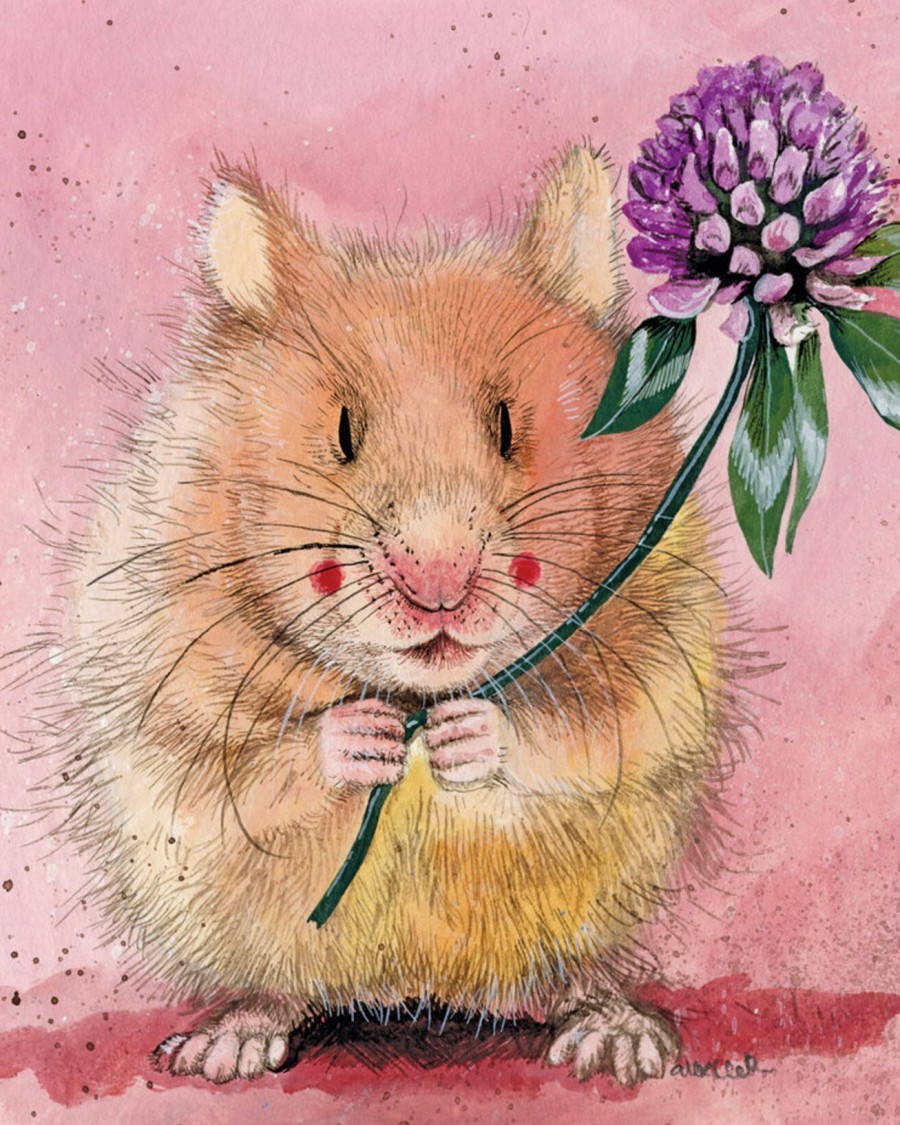Tips for A Happy and Healthy Hamster

Hamsters are curious, lively creatures, but they need proper care to stay happy and healthy. Their small size and fast movements often make it easy to overlook the finer details of their needs, yet a well-loved rescued hamster will reward you with plenty of personality and charm.
Hamsters are usually not good ‘pets for children’, as most breeds are solitary and nocturnal, and don’t appreciate being picked up and played with during the day. They also can get exhausted on hamster wheels, and are easily injured.
Blue Cross has good welfare advice for pet hamsters. Some breeds can fight, it’s really important to know what you’re doing, before adopting hamsters.
Dwarf hamsters struggle to climb, so could be injured or even suffocate in ‘toilet roll’ tube systems. They also can’t cope with steep ladders.
Exercise wheels can also cause back problems, if hamsters can’t raise their heads or curve their spines. They can also trap feet (RSPCA does not recommend exercise balls for hamsters).

Choose the Right House Size
A hamster thrives in a spacious cage where it can move about freely. Tiny cages or cramped boxes can quickly lead to stress, boredom and even illness. Look for cages with plenty of floor space (ideally 80 by 50 cm or larger for Syrian hamsters) and a secure lid.
Avoid wire floors, as they can hurt small feet and cause sores. A roomy, safe home is the foundation of all good hamster care.
Use Deep Bedding for Burrowing
Hamsters love to dig and burrow, a natural behaviour that keeps them happy. Provide at least 15-20 cm of safe bedding, such as paper-based shavings (never use pine or cedar, which can cause breathing problems).
A thick bed of soft material lets your hamster make cosy tunnels and nests, reducing stress and supporting healthy instincts.
Offer a Balanced Diet
Good food is key to a long, healthy hamster life. Commercial hamster mixes should make up most of their diet, but add in small portions of fresh fruit and veg like carrot, apple or broccoli for a boost of nutrients.
Always remove uneaten fresh food before it spoils. Avoid feeding them citrus, onion, garlic or chocolate, as these can be harmful. Fresh, clean water should be available every day.
Give Chew Toys and Items for Gnawing
A hamster’s teeth never stop growing, so ensure chew toys are safe good brands. Choose wooden or natural items, untreated and free from chemicals or glues.
Items like cardboard tubes are also good for wearing down teeth naturally. Regular gnawing prevents dental problems and keeps your hamster occupied.
Create a Safe Environment
Keep your hamster’s cage out of direct sunlight, draughts and noisy areas. Sudden cold or heat can make them ill, so aim for a stable room temperature.
Always check for hazards in and around the cage, like loose wires or plastic pieces, which your hamster might chew. Safe surroundings give your pet room to relax and feel secure.
Clean the Cage Regularly, But Not Too Often
A clean home helps prevent illness and keeps unpleasant smells at bay. Remove soiled bedding and spot-clean every few days. A full clean with fresh bedding should happen every one to two weeks.
Try not to clean too often, as changing the scent too much can stress your hamster. Always use unscented pet-friendly cleaning products and rinse thoroughly.
Encourage Gentle Handling and Socialisation
Hamsters are prey animals, so sudden grabs can frighten them. Begin handling slowly, letting your hamster get used to your scent first.
Scoop them gently from below, using both hands, and always handle close to the ground in case they jump. Short, regular sessions help build trust, and soon your hamster may look forward to your visits!
Provide Plenty of Exercise Opportunities
Exercise wheels are a must for hamsters. Climbing blocks, ladders and tunnels also help burn off energy and offer mental stimulation. Swap in new toys now and then to keep things interesting, or set up a supervised playpen for extra exploring time.
Pay Attention to Signs of Illness
Watch for changes in behaviour, appetite or appearance. Common signs of illness include hunched posture, hair loss, weight loss, sneezing, or runny eyes.
If you spot anything unusual, seek advice from a vet with experience in small pets (exotics vets are best). Early attention can make a big difference for your hamster’s health.
Give Your Hamster Space and Peace at Rest
Hamsters are nocturnal and need plenty of quiet time during the day. Avoid disturbing them while they sleep, as waking a napping hamster can make it grumpy or stressed.
Place the cage in a quiet corner and keep noise to a minimum. Respecting your hamster’s routine helps it stay calm and happy.






